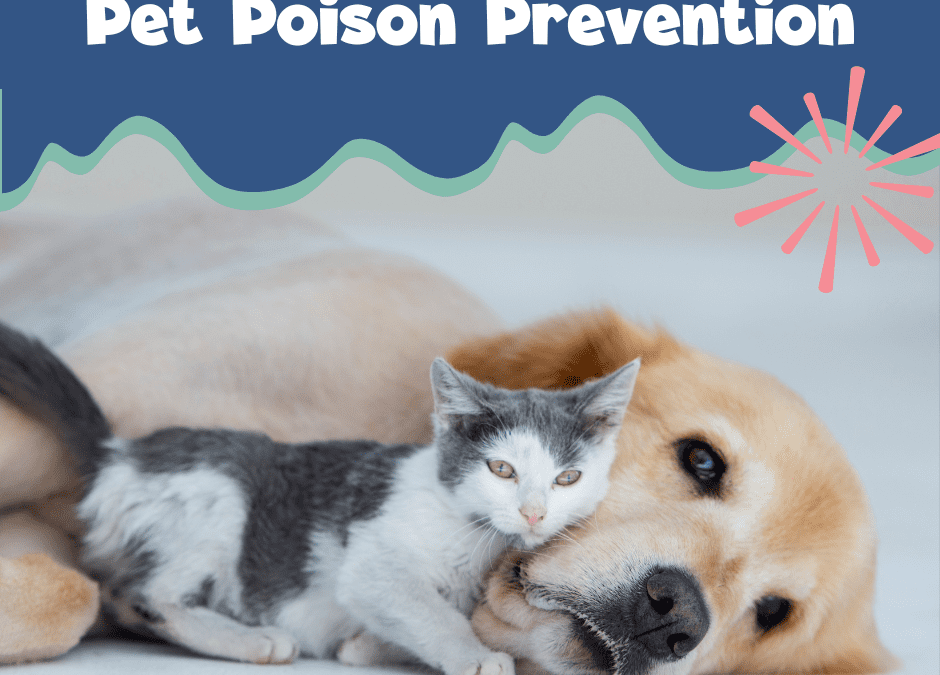Welcome, pet guardians, to a quick guide that’s all about keeping tails wagging and whiskers twitching in safe delight! We’re diving into the realm of everyday pet toxins – those sneaky culprits that might be lurking in our homes, ready to cause mischief. Fear not! This guide is your passport to outsmarting these mischievous substances, ensuring your furry friends live their happiest and healthiest lives. Stone Ave Vet is here with the lowdown on the top seven pet toxins and how to keep your furry friends safe and sound
- Chocolate Catastrophe: You might love sinking your teeth into a bar of chocolate, but for your pooch, it’s a recipe for disaster. Chocolate contains theobromine, a no-no for our canine companions. If your pup gets a hold of your secret stash, it could lead to anything from tummy troubles to seizures. Keep the cocoa treats on your turf.
- Xylitol Woes: This sneaky sugar substitute is found in sugar-free gum and some peanut butters. Xylitol can send your dog’s blood sugar plummeting, resulting in a hypoglycemic nightmare. Check your labels, and make sure your peanut butter is pup-friendly.
- Houseplant Hazards: Sure, that potted plant might look like a fancy addition to your decor, but some plants spell trouble for curious critters. Peace Lilies and Philodendrons can be toxic to pets. Choose pet-friendly greenery to keep the botanical beauty without the risk.
- Medication Mishaps: Ever dropped a pill, only to see your pet pounce on it like a prized possession? Common human medications can be pet poisons. Keep those pill bottles secure and vacuum the floors regularly to avoid accidental ingestions.
- Cleaning Product Caution: Our cleaning arsenal may be sparkling, but it could also harbor dangers. Certain cleaners contain chemicals that can harm pets. Store them safely, and consider switching to pet-friendly alternatives for a clean conscience.
- Tasty Antifreeze Trouble: Antifreeze might taste sweet to your pets, but it’s a deadly sip. Even a small amount can cause kidney failure. Check for leaks in your car and clean up spills pronto.
- Baited Traps – Rodent Style: If you’re tackling a mouse menace, be cautious with rodenticides. They might be mouse-killing marvels, but they’re not pet-friendly. Place them in spots your pets can’t reach.
To keep our pets safe, prevention becomes paramount. Awareness is the first step toward a pet-safe environment. It’s crucial for pet parents to familiarize themselves with common household toxins, ensuring that items like medications, certain plants, and household cleaners are stored securely out of reach.
In case of an emergency, immediate action is essential. Save our phone number on speed dial (864-214-7992) and write down the ASPCA Animal Poison Control Center hotline (1-888-426-4435).
Keep these tips close, share them with your pet-loving pals, and let’s make our homes the safest playgrounds for our precious pals. Stay pawsome, pet parents!

